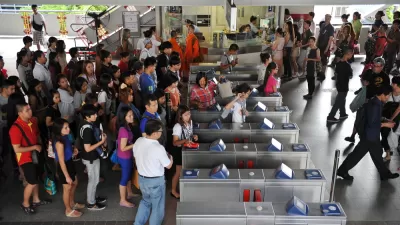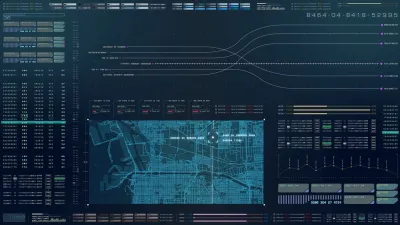Thinking beyond the MetroCard.

Tomas Likar, vice president of Strategy and Business Development at Hyperwallet, writes a guest post for Smart Cities Dive that expresses the importance of state-of-the-art payment infrastructure to any manner of "smart city" technology.
What I’m proposing here is that payment systems — the solutions that enable citizens to use other infrastructure in a quick, easy, and productive manner — should be planned and implemented with the same control and attention to detail as a new rapid transit line or bus route. That's because payment infrastructure and the data that’s connected to it has the power to influence almost every aspect of civic planning.
The star witness in Likar's case is the New York MTA's MetroCard, which is now a source of major frustration, but will eventually (i.e., in 2023) be replaced with a contactless payment system. It's not enough just to gain access to buses and subways, argues Likar, a "proprietary open-loop payment system" can help improve service, cut costs, and enable access for all kinds of city services.
FULL STORY: Your city can't become 'smart' without proper payment infrastructure

Maui's Vacation Rental Debate Turns Ugly
Verbal attacks, misinformation campaigns and fistfights plague a high-stakes debate to convert thousands of vacation rentals into long-term housing.

Planetizen Federal Action Tracker
A weekly monitor of how Trump’s orders and actions are impacting planners and planning in America.

In Urban Planning, AI Prompting Could be the New Design Thinking
Creativity has long been key to great urban design. What if we see AI as our new creative partner?

Florida Seniors Face Rising Homelessness Risk
High housing costs are pushing more seniors, many of them on a fixed income, into homelessness.

Massachusetts Budget Helps Close MBTA Budget Gap
The budget signed by Gov. Maura Healey includes $470 million in MBTA funding for the next fiscal year.

Milwaukee Launches Vision Zero Plan
Seven years after the city signed its Complete Streets Policy, the city is doubling down on its efforts to eliminate traffic deaths.
Urban Design for Planners 1: Software Tools
This six-course series explores essential urban design concepts using open source software and equips planners with the tools they need to participate fully in the urban design process.
Planning for Universal Design
Learn the tools for implementing Universal Design in planning regulations.
Gallatin County Department of Planning & Community Development
Heyer Gruel & Associates PA
JM Goldson LLC
City of Camden Redevelopment Agency
City of Astoria
Transportation Research & Education Center (TREC) at Portland State University
Jefferson Parish Government
Camden Redevelopment Agency
City of Claremont





























